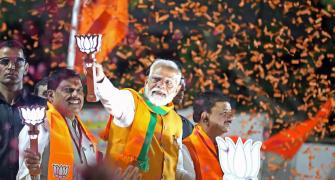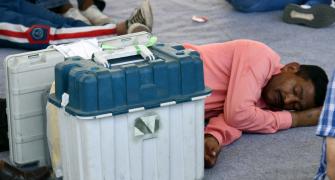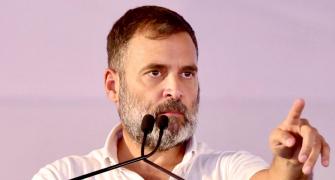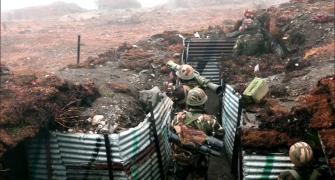Stating that space can be a great meeting point for the nations of the world divided by artificial boundaries on earth, President Dr A P J Abdul Kalam has said the current century was poised to witness a space industrial revolution that would solve many pressing problems of the people of this planet.
There would develop new space markets, systems and technologies and this development would be triggered by the quest for energy, water, more space for human habitat and exploration of minerals from other planets and asteroids, said Dr Kalam while delivering his address on 'Creative Leadership for Future Challenges of Space' at the International Space University in Strasbourg on Tuesday evening.
The use of space for meeting the needs for resources of habitat of the earth would, however, not be possible unless mankind developed cutting edge technology to make low cost access to space a reality, he said.
Underlining the importance of space research, he said that in many cases what was perfected as space technology became a technology that enhanced the quality of human life on earth. Some examples were the revolution in communication, tele-presence, infotainment, and an integrated picture of earth and its resources.
Besides direct contributions, he added, the fruits of space research had also resulted in designing innovative products such as cardiac stent and heart pacemaker for healthcare.
He said space technologies become very important in view of the increasing world population which today stood at 6.6 billion and was projected to be over 9 billion by 2050. The critical issues arising from this population growth were shortage of energy and water and increasing damage to the natural environment and ecology.
Kalam said earth's civilisation would run out of fossil fuels in this century. Oil reserves were on the verge of depletion, followed by gas and finally, coal. In such a scenario, solar energy which was clean and inexhaustible, was the only hope.
"For example, even if one per cent of India's land area were harvested for solar energy, the yield would be nearly 1000 gigawatts, or 10 times more than the current consumption. However, solar flux on earth is available for just 6-8 hours every day, whereas incident radiation on space solar power station would be 24 hours every day. What better vision can there be for the future of space exploration than participating in a global mission for perennial supply of renewable energy from space?" Kalam asked.
He said the use of clean solar energy had become more important in view of the increasing global warming due to emission of greenhouse gases.
Kalam also called upon space scientists to find ways for effective disaster management, saying earthquake/tsunami is a sub-terrain phenomenon and predicting this from space observations would be a great challenge. Space scientists of multiple nations should work together to use satellite deep penetration images to predict earthquakes or shock wave propagation.
Talking about India's space programmes and research, he said science and technology was accelerating the social and economic advancement of the nation and recalled the contribution of Dr Vikram Sarabhai, who pioneered India's space programme, which in the last four decades, has been touching the lives of many among the billion people of India in several ways.
"Today, India with her 14,000 scientific, technological and support staff in multiple space research centres, supported by about 500 industries and academic institutions, has the capability to build any type of satellite launch vehicle to place remote sensing, communication and meteorology satellites in different orbits and space application has become part of our daily life. India has today a constellation of six remote sensing and 10 communication satellites serving applications like natural resource survey, communication, disaster management support, meteorology, tele-education (10,000 class rooms) and tele-medicine (200 hospitals)," he said.








